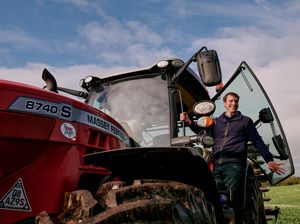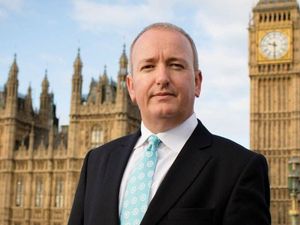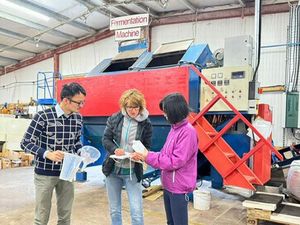Shropshire Farming Talk with Bradford Estates
The unprecedented pricing issues affecting the farming industry hit home at Bradford Estates when we came to shear the first flock of sheep we have owned in recent times.

Last year we added New Zealand Romney to the estates land on the Shropshire and Staffordshire borders as part of joint venture Bradford Sheep, launched as part of our push to increase regenerative and sustainable farming across our 12,000-acres.
In total, 300 sheep were managed on land near the estates offices at Weston-under-Lizard as part of a project which will ultimately see Bradford Sheep branded lamb produce going on sale.
When we came to the spring, we were struck by how the value of fleece per sheep was only around half the cost of shearing each animal.
At the same time, the bigger picture shows that we are importing other clothing materials like cotton from water stressed countries where resources are being stretched to provide cheap fabrics.
The statistics show that vast amounts of water are needed to produce a single T-shirt.
Our wool cannot be used for T-shirts but it has been sobering to see how the wool we make could be used for clothing but it is worth a pittance.
The British Wool Board needs to do more to raise awareness of the amount of UK wool being produced with no end use available.
I have been part of a working group set up by the Agri-EPI Centre, based in Edgmond Newport, looking at how we could use wool materials in farming.
Sustainability is vital to our industry as we move forward, particularly as Covid-19 and the cost of living crisis have shown how reliant we are on imports.
With consumers seeking out the cheapest options, it may not resonate with many the cost of shearing is double the value of the UK wool.
But if imported wool is being used within our clothing industry instead of locally sourced options we all lose out in the long run.
As farmers we can play our part in trying to make use of the surplus of wool for materials used in agriculture.
The alternative is that piles of UK wool will simply end up as compost, while imported wool is used to produce clothing on sale here and around the world.
These are the extremes we are seeing because of inflation and the rise in costs.
The Government will need to look at national import and export policies or these scenarios will become increasingly common, causing further damage to our long term future.
Oliver Scott is Farms Director at Bradford Estates




